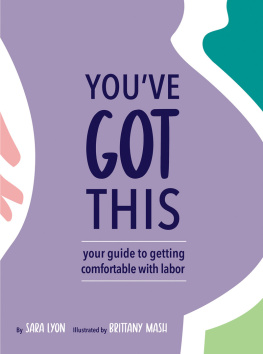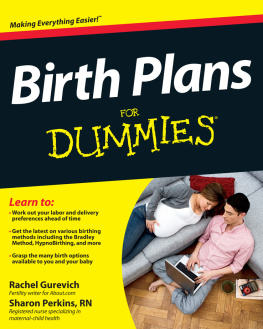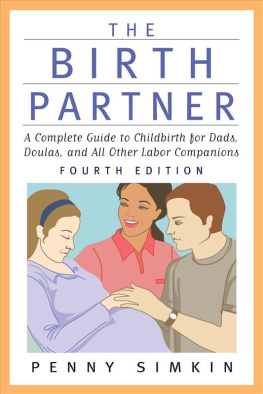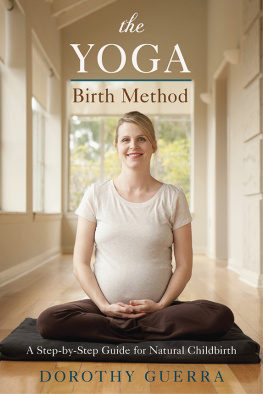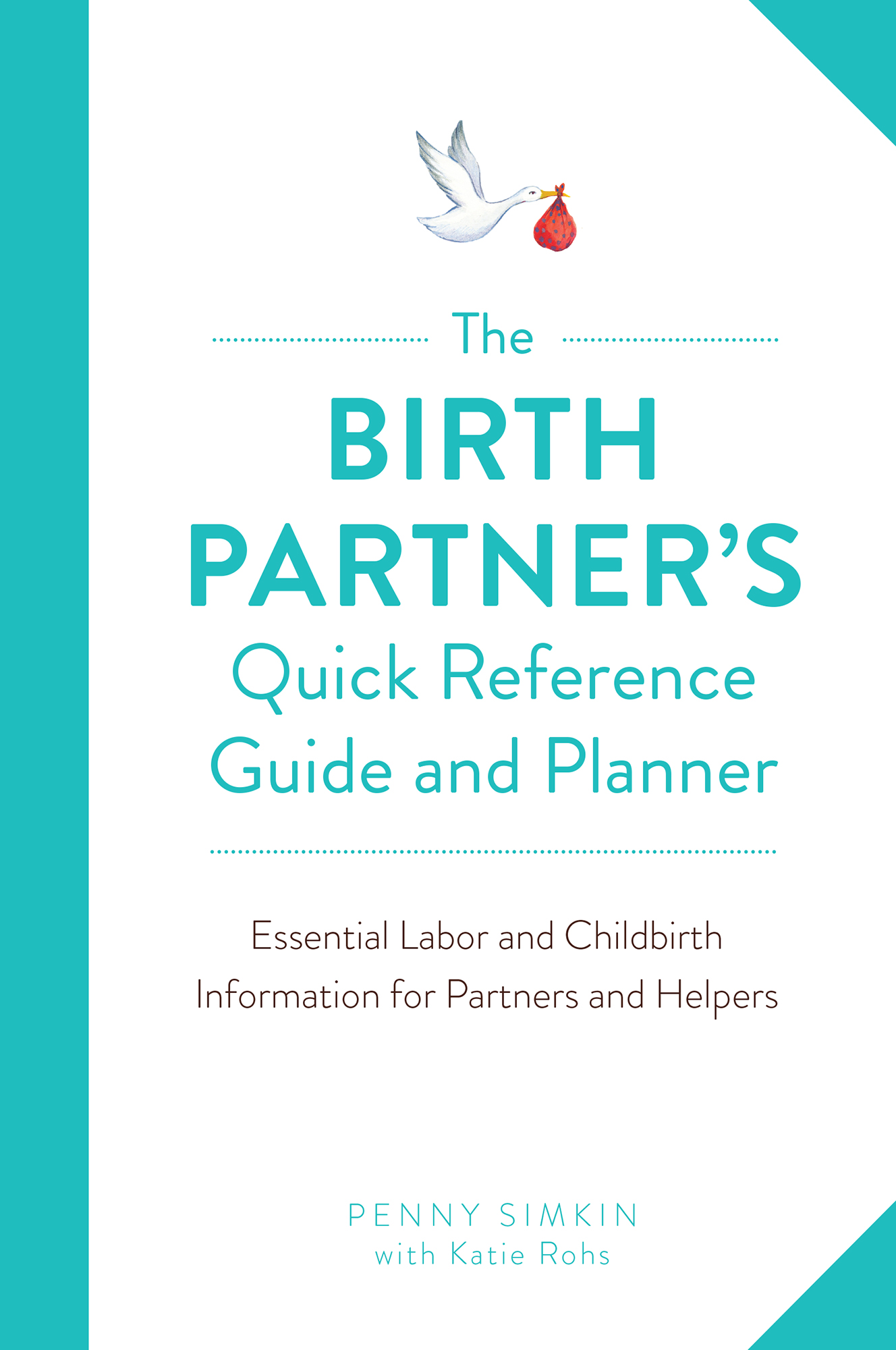Contents
Guide
The
BIRTH PARTNERS
Quick Reference Guide and Planner
Essential Labor and Childbirth Information for Partners and Helpers
PENNY SIMKIN
with Katie Rohs

PREFACE
This book is for those parents-to-be, loved ones, and doulas who will accompany a pregnant person through labor and birth. While the role is exciting, it can also be a bit scary if you dont know how to be helpful. We intend that this guide will give you the confidence and skills to be a positive part of the new parents birth memory. Congratulations!
Penny & Katie
2020 Quarto Publishing Group USA Inc.
Text 2013, 2018, and 2020 Penny Simkin
First Published in 2019 by The Harvard Common Press, an imprint of The Quarto Group,
100 Cummings Center, Suite 265-D, Beverly, MA 01915, USA.
T (978) 282-9590 F (978) 283-2742 QuartoKnows.com
All rights reserved. No part of this book may be reproduced in any form without written permission of the copyright owners. All images in this book have been reproduced with the knowledge and prior consent of the artists concerned, and no responsibility is accepted by producer, publisher, or printer for any infringement of copyright or otherwise, arising from the contents of this publication. Every effort has been made to ensure that credits accurately comply with information supplied. We apologize for any inaccuracies that may have occurred and will resolve inaccurate or missing information in a subsequent reprinting of the book.
The Harvard Common Press titles are also available at discount for retail, wholesale, promotional, and bulk purchase. For details, contact the Special Sales Manager by email at or by mail at The Quarto Group, Attn: Special Sales Manager, 100 Cummings Center, Suite 265-D, Beverly, MA 01915, USA.
Digital edition: 978-1-55832-978-2
Softcover edition: 978-1-55832-977-5
Digital edition published in 2020
The content for this book appeared in the previously published The Birth Partner, 7th Edition (The Harvard Common Press 2018).
Library of Congress Cataloging-in-Publication Data available
Design: Sporto
Illustration: Gayle Isabelle Ford
CHAPTER 1
The Last Weeks of Pregnancy
Y OUR ROLE AS BIRTH PARTNER BEGINS before the pregnant person is in labor. During the last weeks of pregnancy, you can learn about labor, encourage the pregnant person to continue good health habits, help with last-minute preparations for the baby and for labor itself, and figure out the role you will play as birth partner. You can prepare for your role through self-examination, discussions with the pregnant person, gathering information, and practicing comfort measures.
This is also the time for you both to make many important decisions about the birth and to discuss them with the caregiver. If you attend childbirth classes and go to prenatal checkups, you will not only become informed, but also meet the doctors or midwives and become more comfortable in your role. You can also get advice and reassurance about anything causing anxiety or uncertainty for either of you.
Early in pregnancy, it seems that nine months are forever and there is plenty of time to do everything that has to be done. It is all too easy, especially for busy people, to postpone getting into the pregnancy. Now, suddenly, the baby is almost due. Time has flown by. As the pregnant persons birth partner, you realize you are being counted on to help them through childbirth. Do you feel ready? Can you help? What do you know about labor? Do you know what to do when? What should you do now to get ready for the baby? The last months of pregnancy are a perfect time to learn these things, but you had better start right awaya month or two before the due date is truly the last minute, especially as many babies arrive early.
GETTING READY FOR LABOR
If you havent already done the things described in the following pages, try to do so a few weeks before the due date or at least before labor starts.
Visit the Pregnant Persons Caregiver (Doctor or Midwife)
If you have not yet met the caregiver, this visit may be more important than you thinkfor both you and the caregiver. Even a brief meeting helps establish for the caregiver that you are an important person in the pregnant persons life. Although a substitute caregiver (another partner in the group practice) may actually attend the birth, this meeting still provides you the opportunity to ask questions, get a feel for what doctors and midwives do, and play a more active role.
Preregister at the Hospital
If youre having a hospital birth, you should preregister, which involves obtaining, reading, and signing pre-admission forms and a medical consent form. By registering in advance, you save time and avoid confusion when you arrive with the pregnant person in labor.
Consider Having a Doula Help You Both During Labor
Why consider a doula? Childbirth is intense, demanding, unpredictable, and painful, and it can last for a few hours to 24, 36, or even more. Even if you are well prepared, you and the pregnant person may find it difficult to apply your classroom learning in the real situation. If you are not well prepared, all the challenges of labor are baffling and anxiety producing.
Of course, you will have a nurse and a doctor or midwife who are likely to be kind and caring, but they will probably be very busy with the clinical aspects of the birth, which are their highest priority. Hospital nurses and midwives rarely remain in the room throughout labor, as they must take breaks, perform duties outside the room and are often taking care of more than one laboring patient at a time. They work in shifts, so over the course of labor, several different professionals are likely to be involved in each laboring persons care. Doctors rely on the nurses to manage the labor, with phone reports as necessary, and they may briefly visit from time to time and will come if problems arise during labor. And, of course, they are there for the birth.
One of the most positive developments in maternity care is the addition of the birth doula, who guides and supports women and their partners continuously through labor and birth. The doula usually meets with you in advance, is on call for you, arrives at your home or the hospital when you need her, and remains with you continuously, with few breaks, until after the baby is born. The doula is trained and experienced in providing emotional support, physical comfort, and nonclinical advice. They draw on their knowledge and experience as they reassure, encourage, comfort, and empathize with the laboring person. The doula also works with the partner, guiding and assisting you on how to help, suggesting when to use particular positions, the bath or shower, and specific comfort measures.
A doula cannot and does not take over your role as the birth partner because you know the birthing person better and love them and the baby as no one else does. But there are many times when the person giving birth needs more than one helper in labor, and the partner needs reassurance, advice, and help, too.
Besides helping the laboring person, a doula can help you in these ways:




